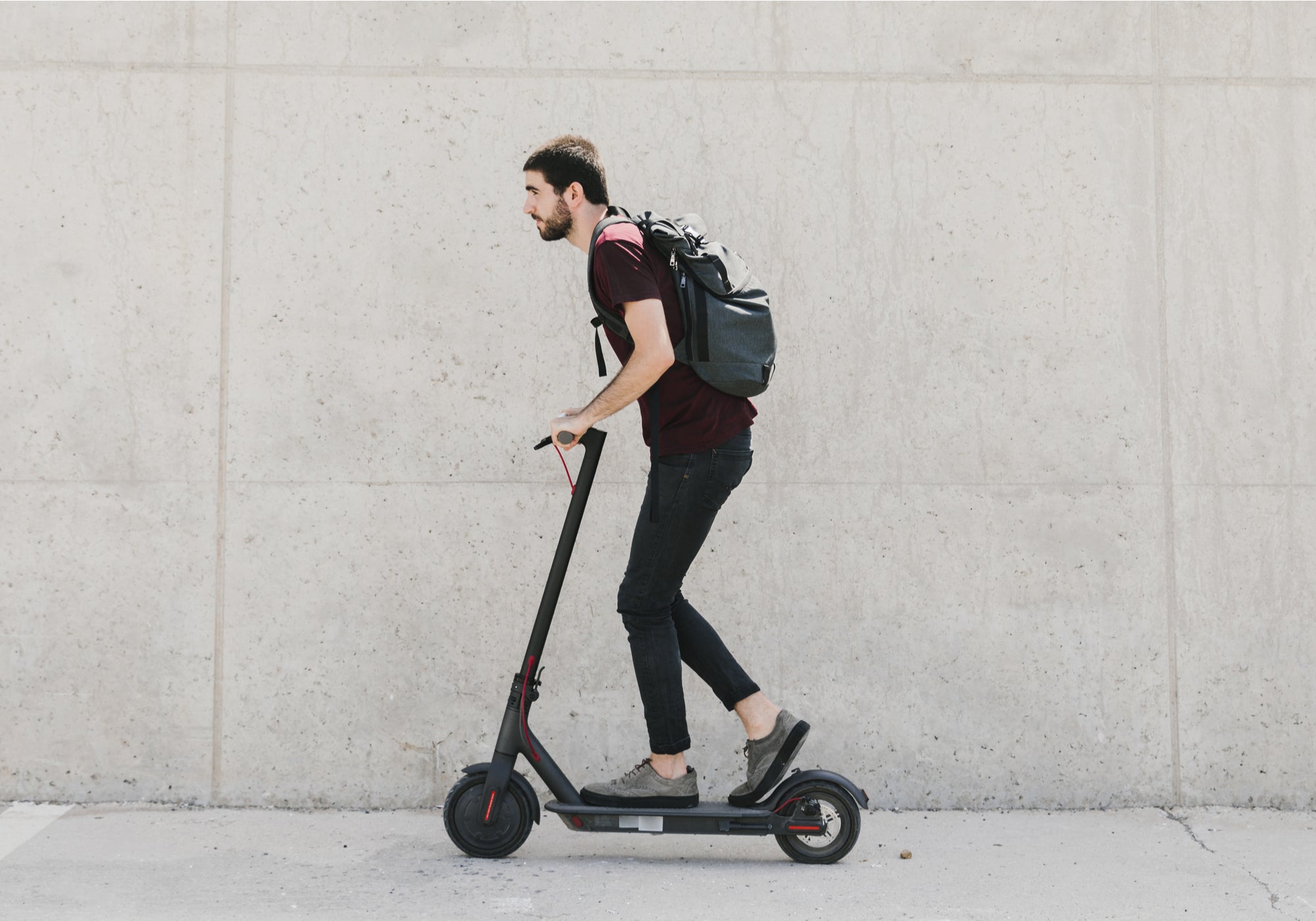
The legal requirement to hold a driving licence to rent an e-scooter will be reassessed when trials conclude in 12 months, sources have told Verdict.
On Wednesday the government announced rental e-scooters trials will become legal on some roads in the UK from Saturday for a one-year trial period. They will be banned on pavements and limited to 15.5mph.

Access deeper industry intelligence
Experience unmatched clarity with a single platform that combines unique data, AI, and human expertise.
A key stipulation is that riders will need a full or provisional car, motorcycle or moped licence to use e-scooters.
Multiple sources close to government e-scooter discussions told Verdict that the main reason a driving licence is mandatory is because it was “necessary to expedite” the trial process.
That’s because the UK’s “antiquated laws” classifies e-scooters as Personal Light Electric Vehicles (PLEVs), which makes them subject to the same legal requirements as motor vehicles. This includes MOT, tax, and licensing.
The driving licence requirement was a means to fast-track the trials, the sources said, with a view to bringing in secondary legislation that makes it legal to use e-scooters without a driving licence.

US Tariffs are shifting - will you react or anticipate?
Don’t let policy changes catch you off guard. Stay proactive with real-time data and expert analysis.
By GlobalDataThis decision will only be taken should the data from the trial support this move, Verdict understands.
Rental e-scooters are currently legal in many parts of the world, including the US and parts of Europe. Israel is the only country where a driving licence is required to use them.
A spokesperson for the Department for Transport did not deny that the requirement for licences may be reassessed, but declined to provide a comment on the record.
It is legal to buy an e-scooter but illegal to ride it on the road or pavement unless on private land. Privately owned scooters will not be legal to use as part of the trial.
E-scooter driving licence: A “financial and bureaucratic” barrier
Earlier today transport experts warned the Transport Committee that the driving licence law creates a “financial and bureaucratic” barrier to the demographics most likely to use them – those without cars.
“The driving licence requirement, I am failing to understand the rationale from that,” said Jillian Anable, chair in transport & energy, University of Leeds, told MPs.
“It seems very limiting, in terms of the social inclusion potential of this in particular,” added Graeme Sherriff, research fellow at the University of Salford.
E-scooter firms including Bird, Voi, Tier, Lime and Bolt are all vying to launch a rental service in the UK. All require a mobile phone app to unlock the dockless scooters, with riders paying by the minute.
Riders have been using Bird e-scooters on private land in London’s Olympic Park as part of a trial since early 2019, while Lime already offers rental e-bike schemes across the country.
It is unclear if e-scooter firms will require riders to scan their driving licence in the app before being permitted to rent a scooter. Some firms, including Wind, already have this capability available.
“Driving licence requirements aren’t a barrier for Bolt,” Sam Raciti, Bolt’s UK country manager, told Verdict. “We’re committed to supporting the conditions the relevant authorities wish to implement to ensure the trials can go ahead and be a success for all those involved.”
Environmental benefits vs safety concerns
The government is exploring the viability of e-scooters in the UK’s transport network in a bid to reduce greenhouse gas emissions as part of its obligation to reach net-zero by 2050.
The e-scooter trial was fast-tracked because of the coronavirus pandemic, with the government exploring alternative means of transport that are not crowded.
“As we emerge from lockdown, we have a unique opportunity in transport to build back in a greener, more sustainable way that could lead to cleaner air and healthier communities across Great Britain,” said Transport Minister Rachel Maclean.
“E-scooters may offer the potential for convenient, clean and cost-effective travel that may also help ease the burden on the transport network, provide another green alternative to get around, and allow for social distancing. The trials will allow us to test whether they do these things.”
However, there are concerns that rental e-scooters will be dumped on pavements when not in use, as has been seen in the US and Europe.
There are also fears that they will pose a risk to vulnerable pedestrians, such as those disabilities, children and elderly people.
“Even with all of the safeguards and some of the things we saw put into place by yesterday’s announcement, we do consider e-scooters to be a real and genuine threat to the ability of blind and partially sighted people to move around independently and safely,” Eleanor Southwood, chair of the Royal National Institute of Blind People, told the Transport Committee this morning.
“Clearly, there are some accessibility issues though and they’re not necessarily for everyone, but I think we should welcome them and give them a role in our transport system,” added Sherrif.
Read more: Tier Mobility makes UK e-scooter push as trials poised to start







